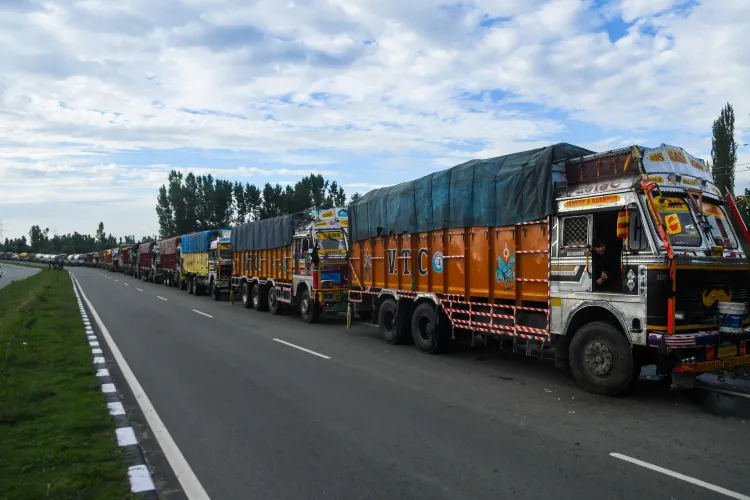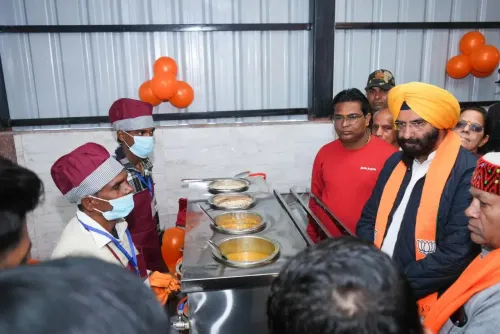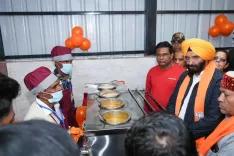When Will the Jammu-Srinagar Highway Fully Reopen?

Synopsis
Key Takeaways
- Jammu-Srinagar national highway partially reopened after landslide blockade.
- Essential supplies, particularly perishables, prioritized for movement.
- Over 4,500 trucks were stranded during the blockade.
- Restoration work completed by NHAI to ensure road usability.
- Highway serves as a lifeline for Kashmir's supply chain.
Srinagar, Sep 10 (NationPress) Following a week-long disruption caused by landslides, the vital Jammu-Srinagar national highway has been partially reopened for vehicular traffic as of Wednesday. Authorities are prioritizing trucks that transport essential goods, with an emphasis on those carrying perishable items such as vegetables, poultry, sheep, and more.
The movement of stranded vehicles was initiated on the highway from Udhampur towards Srinagar, with passenger vehicles being the first to resume travel.
More than 4,500 trucks loaded with fruits had been immobilized on the highway due to the blockade, parked along the route in the Valley between Qazigund in Kulgam and the Pulwama district.
Many fruit growers have reported that their fresh apple stocks are beginning to decay due to delays in reaching markets outside Jammu and Kashmir.
Approximately 250 meters of the highway was damaged at Bani Nallah in Udhampur district due to relentless rainfall.
Traffic department officials indicated that passenger vehicles and trucks carrying crucial supplies, including chicken, meat, and other perishables, were permitted to proceed from Udhampur towards Srinagar starting at 10 a.m.
Officials confirmed that the National Highways Authority of India (NHAI) finished restoration work late Tuesday night, establishing a new diversion to ensure the road is usable.
They stated that workers and machinery operated round-the-clock for six days to create the alternate route at Bani Nallah, facilitating vehicular movement.
The Jammu-Srinagar national highway serves as the lifeline for supplies to the landlocked Kashmir region, as all essential goods, including food grains, vegetables, poultry items, mutton, and petroleum products, are transported into the Valley via this route.
The uncertainty faced by locals regarding the arrival and departure of essential supplies will only dissipate once freight trains commence regular operations on the rail link connecting Kashmir with the rest of the country.










